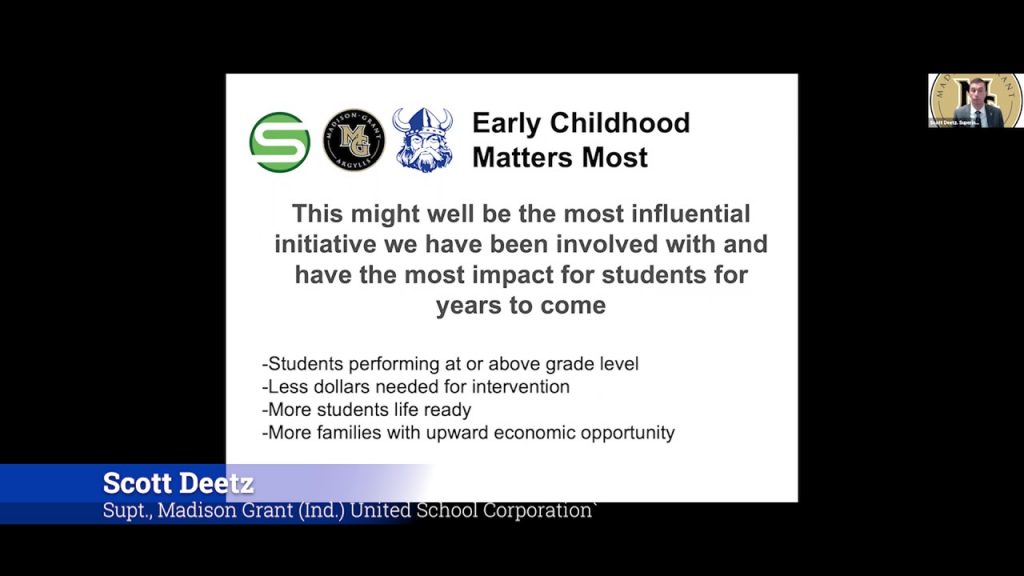By Molly Castle Work |
AASA conference attendees learned about a new research-based evaluation tool for early learning programs with an equity mission during a panel session on Thursday, Feb. 18.
During a presentation titled “Early Learning Program Assessment — Why It Matters,” superintendents Scott Deetz and Edward Manuszak partnered with Standards for Success to describe a new product called Early Learning Program Assessment Tool, or ELPAT, a comprehensive digital platform for measuring the effectiveness of early learning programs for children through age 8.
(Watch a short video clip of this session.)
Todd Whitlock, CEO of Standards for Success based in Cloverdale, Ind., used an analogy of children waiting at the start line before a race. ELPAT can be used by school and district leaders to make informed programmatic changes, based on data and research, to address equity in learning — or what Whitlock said would ensure all young students have the opportunity to start at the same line in a race.
“The zip code should not define the quality of education that your child receives,” said Manuszak, superintendent of the 1,800-student Dundee Community Schools in Dundee, Mich. “We need to make sure that we are approaching this with a lens of equity.”
The panelists shared their experiences using ELPAT and sang its praises. Manuszak, who co-chairs the AASA Early Learning cohort, noted how user friendly the web platform is and how it allows school leaders, even those without an early learning background, to compare their program with others in their geographic areas and assess their program’s strengths and weaknesses.
It’s important for educators and others to realize this isn’t about just hitting the minimum requirements, said Whitlock. “This is an improvement exercise for your program and for your community. … It should be a continuous growth process.”
According to Deetz, superintendent of Madison Grant United School Corporation in Fairmount, Ind., investing in the success of children at early ages of learning pays dividends in subsequent years.
He observed that students who attended high-quality preschools were better prepared for kindergarten, both behaviorally and academically. This not only paves the way for strong performance in future schooling, it also means schools may need less funds and other resources for interventions in later grades. He considers it a return on investment.
“Early childhood matters most is our mantra,” said Deetz. “This might well be the most influential initiative that we have been involved with personally and professionally and will have the most impact on students for years to come.”
Manuszak hopes ELPAT can help drive conversations like these at a national level, maybe influencing policy and practices for the future.
“I think that this is a game changer,” he said.
(Molly Castle Work is a master’s student at University of Maryland’s Philip Merrill College of Journalism and an intern with AASA’s Conference Daily Online.)

